COVID-19: TCTMD’s Daily Dispatch for June Week 3
We’re curating a list of COVID-19 research and other useful content, and updating it daily.

TCTMD reporter Todd Neale is keeping up on breaking news and peer-reviewed research related to COVID-19 and will update daily. If you have something to share, tell us. All of our COVID-19 coverage can be found on our COVID-19 Hub.
June 18, 2021
As concern about infection falls, most Americans are resuming their pre-pandemic habits when it comes to eating out, traveling, and attending events like movies or sports, according to an Associated Press-NORC Center for Public Affairs Research poll. Only 21% of respondents said they were very or extremely worried about COVID-19 in their inner circle, which is the lowest level of the pandemic, and only 25% are highly concerned that the easing of restrictions will lead to more people getting infected in the community. However, another 34% think the restrictions were lifted too quickly.
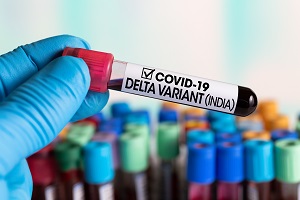 On Friday, the chief scientist of the World Health Organization (WHO) said the Delta variant of SARS-CoV-2, which first emerged in India, is approaching world dominance, Reuters reports. “The Delta variant is well on its way to becoming the dominant variant globally because of its increased transmissibility,” the official said at a press conference.
On Friday, the chief scientist of the World Health Organization (WHO) said the Delta variant of SARS-CoV-2, which first emerged in India, is approaching world dominance, Reuters reports. “The Delta variant is well on its way to becoming the dominant variant globally because of its increased transmissibility,” the official said at a press conference.
Hundreds of doctors and healthcare workers in the Kudus region of Indonesia have gotten COVID-19, with dozens hospitalized, despite receiving China’s Sinovac vaccine, Reuters reports. Most of those affected have remained asymptomatic. “The data shows they have the Delta variant (in Kudus) so it is no surprise that the breakthrough infection is higher than before, because, as we know, the majority of healthcare workers in Indonesia got Sinovac, and we still don’t know yet how effective it is in the real world against the Delta variant,” one epidemiologist said.
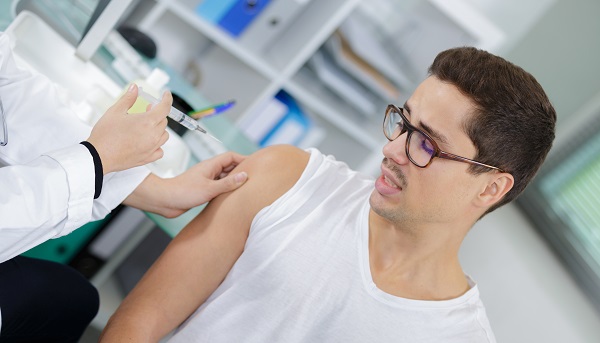 More than 300 cases of myocarditis after COVID-19 vaccination have been reported in young people, US Centers for Disease Control and Prevention (CDC) Director Rochelle Walensky, MD, said Thursday, according to NBC News. In the context of more than 20 million vaccinations in adolescents and young adults, that’s rare, but it’s still higher than expected. The CDC’s Advisory Committee on Immunization Practices (ACIP) was set to discuss the issue on Friday, but the meeting was pushed to next week due to observance of the newly created Juneteenth National Independence Day holiday celebrating the end of slavery in the United States. A story by TCTMD’s Michael O’Riordan delves into new data on the potential myocarditis-vaccine link published this week.
More than 300 cases of myocarditis after COVID-19 vaccination have been reported in young people, US Centers for Disease Control and Prevention (CDC) Director Rochelle Walensky, MD, said Thursday, according to NBC News. In the context of more than 20 million vaccinations in adolescents and young adults, that’s rare, but it’s still higher than expected. The CDC’s Advisory Committee on Immunization Practices (ACIP) was set to discuss the issue on Friday, but the meeting was pushed to next week due to observance of the newly created Juneteenth National Independence Day holiday celebrating the end of slavery in the United States. A story by TCTMD’s Michael O’Riordan delves into new data on the potential myocarditis-vaccine link published this week.
Addressing one potential factor underlying a hesitancy to get vaccinated against COVID-19, researchers report in JAMA that receiving two doses of an mRNA vaccine was not associated with a detrimental impact on any sperm parameters in a small cohort of healthy young men, which may ease concerns about any negative effects on fertility. The study was limited, however, by the lack of a control group and the fact that it didn’t look at fertility per se.
Loss of smell and taste has been a frequently reported symptom of COVID-19 infection. Now a preprint study using before-and-after imaging data from the UK Biobank suggests that COVID-19 leads to loss of brain tissue related to those senses. The findings “consistently relate to loss of grey matter in limbic cortical areas directly linked to the primary olfactory and gustatory system,” the researchers write. Scott Gottlieb, MD, former US Food and Drug Administration (FDA) Commissioner and current member of the Pfizer board of directors, told CNBC, “You could compensate for that over time, so the symptoms of that may go away, but you’re never going to regain the tissue if, in fact, it’s being destroyed as a result of the virus.”
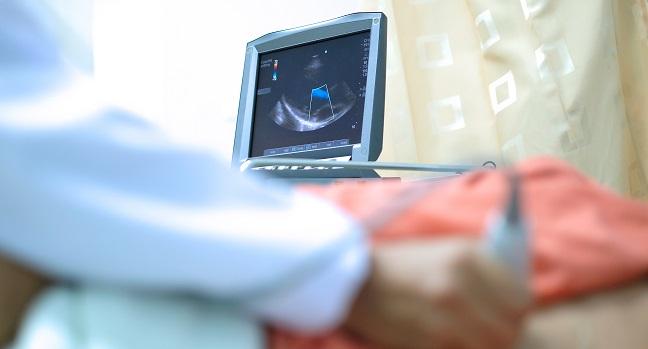 The number of diagnostic tests for cardiovascular disease in the United States fell by 68% in the first month of COVID-19 lockdowns, similar to the drop seen globally in the INCAPS-COVID registry, researchers report in JACC: Cardiovascular Imaging. And while the sharp drop in cardiac admissions and procedures amid COVID-19 has been well documented, the new study shines a light on the decline in cardiovascular diagnostic tests and what this may portend for the future. “If these don't get made up, at a certain point, it's going to catch up with us in terms of cardiovascular outcomes,” the senior author told TCTMD Managing Editor Shelley Wood.
The number of diagnostic tests for cardiovascular disease in the United States fell by 68% in the first month of COVID-19 lockdowns, similar to the drop seen globally in the INCAPS-COVID registry, researchers report in JACC: Cardiovascular Imaging. And while the sharp drop in cardiac admissions and procedures amid COVID-19 has been well documented, the new study shines a light on the decline in cardiovascular diagnostic tests and what this may portend for the future. “If these don't get made up, at a certain point, it's going to catch up with us in terms of cardiovascular outcomes,” the senior author told TCTMD Managing Editor Shelley Wood.
Taking advantage of subtle changes caused by acute SARS-CoV-2 infection, artificial intelligence (AI)-enhanced ECG may prove useful as a way to screen for—and exclude—COVID-19, a study published in Mayo Clinic Proceedings suggests. The high negative predictive value achieved using this approach “may permit the development of ECG-based tools to rapidly screen individuals for pandemic control especially in a clinic or hospital setting. Development of mobile technology enabled AI-ECGs may have broader implications that may enable resumption of normal operations across society,” the authors say. TCTMD has the story.
The higher likelihood of 30-day inpatient mortality or discharge to hospice among Black versus white COVID-19 patients in the United States “is associated with the hospitals at which Black patients disproportionately received care,” which had higher mortality rates than other centers for patients of all races, according to a study in JAMA Network Open. David Baker, MD, writes in an accompanying editorial: “To achieve large gains rather than marginal improvements, we must understand the full set of root causes for disparities in COVID-19 incidence and mortality and use a broad combination of policies and programs to mitigate them and move our country toward equity. But we must dig deep. We must trace these roots to their origin, for there we find the legacy of structural racism, the most difficult and lasting cause that we must finally address if we are to succeed.”
 US President Joe Biden’s administration is investing more than $3 billion from the American Rescue Plan to develop the next generation of antivirals to treat COVID-19, the US Department of Health and Human Services (HHS) announced yesterday. “Vaccines remain the centerpiece of our arsenal against COVID-19, but antivirals are an important complement to existing vaccines,” Anthony Fauci, MD, chief medical adviser to the President and director of the National Institute of Allergy and Infectious Diseases (NIAID), said at a White House press briefing, as reported by CIDRAP News.
US President Joe Biden’s administration is investing more than $3 billion from the American Rescue Plan to develop the next generation of antivirals to treat COVID-19, the US Department of Health and Human Services (HHS) announced yesterday. “Vaccines remain the centerpiece of our arsenal against COVID-19, but antivirals are an important complement to existing vaccines,” Anthony Fauci, MD, chief medical adviser to the President and director of the National Institute of Allergy and Infectious Diseases (NIAID), said at a White House press briefing, as reported by CIDRAP News.
June 17, 2021
Three new papers in Circulation provide insights into cases of myocarditis occurring after COVID-19 vaccination, usually with one of the mRNA-based vaccines. In a case series of seven men younger than 40—six who received an mRNA vaccine and one who received the adenovirus vaccine from Johnson & Johnson (Janssen)—symptoms resolved in all patients. A case report details what happened with a 52-year-old man who presented with presumed myocarditis following a second dose of mRNA vaccine; his chest discomfort had fully resolved within 3 hours of onset and didn’t recur throughout the rest of his 4-day hospital stay. And another study of eight men ages 21 to 56 diagnosed with myocarditis 2 to 4 days after mRNA vaccination shows that all had resolution of their chest pain and were discharged in stable condition. In a press release, the American Heart Association (AHA) continued to urge people to get vaccinated, saying the benefits of doing “far exceed the very unusual risks.”
The Advisory Committee on Immunization Practices (ACIP), which provides guidance to the US Centers for Disease Control and Prevention (CDC), will meet Friday to discuss reports of myocarditis in young people receiving the mRNA vaccines. The issue is sowing doubts in the minds of some experts about vaccinating children, according to a KHN story.
Pfizer’s rheumatoid arthritis drug tofacitinib (Xeljanz) reduces the risk of death or respiratory failure through day 28 in patients hospitalized with COVID-19 pneumonia, according to results of the placebo-controlled STOP-COVID trial published in the New England Journal of Medicine. In the trial, conducted at 15 Brazilian sites, the rate of that composite primary endpoint was 18.1% in those treated with tofacitinib and 29.0% of those treated with placebo.
 Two other NEJM studies delve into the treatment of the multisystem inflammatory syndrome in children (MIS-C) associated with SARS-CoV-2 infection. A propensity-matched analysis demonstrated that CV dysfunction was reduced by initial treatment with IV immune globulin (IVIG) plus glucocorticoids compared with IVIG alone. An analysis of data from 32 countries did not, however, show a difference in outcomes when patients were treated with IVIG plus glucocorticoids or glucocorticoids alone, when compared with IVIG alone. An editorialist points to a couple of factors that can explain the “apparently disparate” results, citing differences in patient populations, study periods, and limitations of observational studies. “Although it is becoming increasingly clear that swift and decisive institution of immunomodulatory therapy can be lifesaving in patients with MIS-C, neither of these studies definitively answered the question about the most effective single or combination treatment,” he writes.
Two other NEJM studies delve into the treatment of the multisystem inflammatory syndrome in children (MIS-C) associated with SARS-CoV-2 infection. A propensity-matched analysis demonstrated that CV dysfunction was reduced by initial treatment with IV immune globulin (IVIG) plus glucocorticoids compared with IVIG alone. An analysis of data from 32 countries did not, however, show a difference in outcomes when patients were treated with IVIG plus glucocorticoids or glucocorticoids alone, when compared with IVIG alone. An editorialist points to a couple of factors that can explain the “apparently disparate” results, citing differences in patient populations, study periods, and limitations of observational studies. “Although it is becoming increasingly clear that swift and decisive institution of immunomodulatory therapy can be lifesaving in patients with MIS-C, neither of these studies definitively answered the question about the most effective single or combination treatment,” he writes.
On Wednesday, CureVac reported underwhelming results from a phase IIb/III trial of its COVID-19 vaccine candidate. “In the unprecedented context of at least 13 variants circulating within the study population subset assessed at this interim analysis, CVnCoV demonstrated an interim vaccine efficacy of 47% against COVID-19 disease of any severity and did not meet prespecified statistical success criteria,” the company said.
While COVID-19 is waning in other parts of the world, numbers are spiking in Africa, with the World Health Organization (WHO) reporting a 44% jump in weekly cases and a 20% increase in deaths, according to CNBC. A WHO official said Wednesday: “While the numbers in Africa themselves . . . don’t represent a massive proportion of global cases, we know that diagnosis in Africa is not at the same level of intensity. So when you see the shift in trend, the trend is concerning.”
Spread of the Delta variant has driven a 50% increase in infections in England since May, according to a preprint study from Imperial College London investigators. The R number was 1.44, which “means 10 infected people would pass the virus on to 14 others on average, resulting in fast growth of the epidemic,” an accompanying news story notes.
A large retrospective analysis published in the Journal of Women’s Health affirms that women fared better than men in the early days of the pandemic. Among patients hospitalized between March 1 and April 27, 2020, women had lower odds of in-hospital mortality, ICU admission, mechanical ventilation, vasopressor requirement, acute cardiac injury, acute kidney injury, and venous thromboembolism. These differences “may be due to protective factors inherent to female sex and protective behaviors typically associated with female gender,” the authors say, adding, however, that “these findings should not lead to the assumption that women require less clinical concern or attention when presenting with COVID-19.”
 The European Union is set to start lifting restrictions on American tourists following a meeting of representatives from its 27 countries, the Associated Press reports. “The recommendation is nonbinding, and national governments have authority to require test results or vaccination records and to set other entry conditions,” the story notes. “The EU has no unified COVID-19 tourism or border policy, but has been working for months on a joint digital travel certificate for those vaccinated, freshly tested, or recently recovered from the virus. EU lawmakers endorsed the plan last week.”
The European Union is set to start lifting restrictions on American tourists following a meeting of representatives from its 27 countries, the Associated Press reports. “The recommendation is nonbinding, and national governments have authority to require test results or vaccination records and to set other entry conditions,” the story notes. “The EU has no unified COVID-19 tourism or border policy, but has been working for months on a joint digital travel certificate for those vaccinated, freshly tested, or recently recovered from the virus. EU lawmakers endorsed the plan last week.”
June 16, 2021
Regeneron’s monoclonal antibody combination of casirivimab and imdevimab, called REGEN-COV, reduced mortality in patients hospitalized with severe COVID-19 who didn’t have an immune response to the infection in the UK RECOVERY trial, as reported both by the company and the trial investigators. Mortality at 28 days was 24% in patients treated with the combo and 30% in those who received usual care (rate ratio 0.80; 95% CI 0.70-0.91). “It is wonderful to learn that even in advanced COVID-19 disease, targeting the virus can reduce mortality in patients who have failed to mount an antibody response of their own,” Peter Horby, MD, PhD, joint chief investigator for RECOVERY, said in a press release.
Surging COVID-19 case numbers in Haiti, which was relatively unscathed during much of the pandemic, have the US government looking at ways to get much-needed vaccines to the country quickly, the Miami Herald reports. “A White House official said the administration is in ‘active’ conversations with the Haitian government on the complexities of delivering a significant number of US vaccine doses to the country, including Haiti’s storage capacity and the logistics of shipping the vaccines in proper conditions.”
 More than one in every five patients who recover from COVID-19 (23.2%) have a least one post-COVID condition 30 days or more after their initial diagnosis, according to a study conducted by the nonprofit organization FAIR Health based on more than 34 billion private healthcare claim records. Long-haul symptoms were more common after severe COVID-19, found in half of patients who were hospitalized, 27.5% of those who were symptomatic but not hospitalized, and 19% of those who had asymptomatic infections. The most common symptoms were pain, breathing difficulties, hyperlipidemia, malaise/fatigue, and hypertension. The New York Times has more.
More than one in every five patients who recover from COVID-19 (23.2%) have a least one post-COVID condition 30 days or more after their initial diagnosis, according to a study conducted by the nonprofit organization FAIR Health based on more than 34 billion private healthcare claim records. Long-haul symptoms were more common after severe COVID-19, found in half of patients who were hospitalized, 27.5% of those who were symptomatic but not hospitalized, and 19% of those who had asymptomatic infections. The most common symptoms were pain, breathing difficulties, hyperlipidemia, malaise/fatigue, and hypertension. The New York Times has more.
On Monday, the US Centers for Disease Control and Prevention (CDC) released initial guidance on how to manage patients with these long-haul symptoms, with the agency noting that “understanding of post-COVID conditions remains incomplete and guidance for healthcare professionals will likely change over time as the evidence evolves.” Roll Call provides details.
The Delta variant of SARS-CoV-2, first identified in India and now causing spikes in cases and growing concern in other parts of the world, has been declared a “variant of concern” by the CDC, following a similar move by the World Health Organization (WHO) last month, CNN reports. US Surgeon General Vivek Murthy, MD, told CNN the strain is rapidly increasing in the country. A Scottish study published earlier this week shows that the variant carries a higher risk of hospitalization compared with the Alpha variant that first emerged in England. The good news is that available vaccines reportedly provide strong protection against the Delta variant.
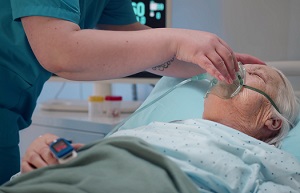 The vast majority of patients currently getting hospitalized with COVID-19 in the United States are not vaccinated, according a story from USA Today. “We're all seeing the same thing—when someone does get sick and comes to the hospital, they're much more likely to be young and unvaccinated,” one expert told the paper. The message, another expert said, is that “vaccination works in preventing severe COVID illness.”
The vast majority of patients currently getting hospitalized with COVID-19 in the United States are not vaccinated, according a story from USA Today. “We're all seeing the same thing—when someone does get sick and comes to the hospital, they're much more likely to be young and unvaccinated,” one expert told the paper. The message, another expert said, is that “vaccination works in preventing severe COVID illness.”
Awareness about COVID-19’s prothrombotic qualities that emerged early in the pandemic soon translated into broad use of anticoagulation to prevent venous thromboembolism, according to a Michigan registry study published recently in JAMA Network Open, which also showed that that prophylactic—but not treatment-level—dosing was associated with better survival at 60 days. One expert stressed to TCTMD’s Caitlin Cox, however, that observational data like these cannot establish causality. The appropriate anticoagulation strategy in patients with COVID-19 remains an area of active research.
In an opinion paper published in Cardiovascular Research, the European Society of Cardiology’s (ESC) Working Group on Cellular Biology of the Heart explores the potential mechanisms underlying the cardiac damage seen in the setting of COVID-19. “Although the main cause of cardiac damage in COVID-19 remains coagulopathy with micro- (and to a lesser extent macro-) vascular occlusion, open questions remain about other possible modalities of cardiac dysfunction, such as direct infection of myocardial cells, effects of cytokines storm, and mechanisms related to enhanced coagulopathy,” the authors write.
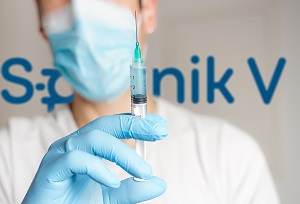 Approval of Russia’s Sputnik V COVID-19 vaccine in Europe has been delayed after a June 10 deadline to submit data was missed, Reuters reports. A German government official said the issue will postpone any authorization of the vaccine in Europe until at least September. The European Medicines Agency (EMA) was initially expected to conclude its review and issue a decision about the vaccine in May or June.
Approval of Russia’s Sputnik V COVID-19 vaccine in Europe has been delayed after a June 10 deadline to submit data was missed, Reuters reports. A German government official said the issue will postpone any authorization of the vaccine in Europe until at least September. The European Medicines Agency (EMA) was initially expected to conclude its review and issue a decision about the vaccine in May or June.
June 15, 2021
SARS-CoV-2 may have been in the US several weeks earlier than initially believed, according to an analysis of blood samples from the US government’s All of Us research program published in Clinical Infectious Diseases. The samples were taken between January 2 and March 18, 2020, with antibodies against the virus found in samples taken as early as January 7. “The results expand on findings from a Centers for Disease Control and Prevention study that suggested SARS-CoV-2, the virus that causes COVID-19, was present in the US as far back as December 2019,” according to a press release from the US National Institutes of Health (NIH). The AP’s Mike Stobbe has more on the findings.
 As expected, British Prime Minister Boris Johnson postponed “freedom day”—June 21, the day pandemic-related restrictions were set to be lifted—by 4 weeks in response to a recent spike in COVID-19 cases driven by the Delta variant first detected in India, the New York Times reports. “The decision, which will be reviewed in 2 weeks, sent a warning to the world that even well-vaccinated nations remain at risk and angered a noisy caucus of libertarian lawmakers within Mr. Johnson’s own party.”
As expected, British Prime Minister Boris Johnson postponed “freedom day”—June 21, the day pandemic-related restrictions were set to be lifted—by 4 weeks in response to a recent spike in COVID-19 cases driven by the Delta variant first detected in India, the New York Times reports. “The decision, which will be reviewed in 2 weeks, sent a warning to the world that even well-vaccinated nations remain at risk and angered a noisy caucus of libertarian lawmakers within Mr. Johnson’s own party.”
A Scottish analysis published in the Lancet indicates that the risk of COVID-19 hospitalization is nearly twice as high when infection is caused by the Delta variant rather than the Alpha variant that first emerged in the UK. Though the Oxford/AstraZeneca and Pfizer-BioNTech vaccines provided protection against the Delta variant, the effects were weaker than the protection against the Alpha variant.
The COVID-19 death toll in the US has exceeded 600,000, with about 33.4 million confirmed cases so far, according to the Johns Hopkins COVID-19 Dashboard. The number of people who have died is greater than the populations of Baltimore or Milwaukee and is roughly the same as the number of Americans who died of cancer in 2019, according to the Associated Press. The worldwide death total comes in at more than 3.8 million.
 That grim milestone was reached as many parts of the US continue to reopen and lift many virus-related restrictions. California, the first state to lock down in the early days of the pandemic, eased most limits Tuesday, “meaning no more state rules on social distancing or capacity limits at restaurants, bars, supermarkets, gyms, stadiums, or anywhere else,” the Associated Press reports. Masks are no longer required for vaccinated people in most settings.
That grim milestone was reached as many parts of the US continue to reopen and lift many virus-related restrictions. California, the first state to lock down in the early days of the pandemic, eased most limits Tuesday, “meaning no more state rules on social distancing or capacity limits at restaurants, bars, supermarkets, gyms, stadiums, or anywhere else,” the Associated Press reports. Masks are no longer required for vaccinated people in most settings.
AstraZeneca reported Monday that its long-acting antibody combination dubbed AZD7442 failed to prevent symptomatic COVID-19 in people recently exposed to SARS-CoV-2. It was studied in the placebo-controlled STORM CHASER trial. A post hoc analysis suggested that the treatment might be useful in people who are not already infected, and the ongoing PROVENT trial will provide insights into that question. Reuters provides some context.
Novavax announced the first data from a trial evaluating the co-administration of vaccines against influenza and COVID-19, which showed that the efficacy of its COVID-19 vaccine candidate was preserved in that scenario. The data were published on the medRxiv preprint server.
A third booster dose of COVID-19 vaccine may enhance protection against SARS-CoV-2 in solid organ transplant recipients, who have a reduced response to vaccination, according to a case series published in the Annals of Internal Medicine. “It is encouraging that antibody titers increased after the third dose in one-third of patients who had negative antibody titers and in all patients who had low-positive antibody titers,” the authors write. “In addition, the vaccine reactions seem acceptable, given the benefits that these vaccines can confer. Antibody responses, however, appear to vary, and potential risks, such as organ rejection, should be evaluated on an individual basis.”
 COVID-19 vaccination rates are lagging behind in Hispanic and Black Americans, according to an analysis by researchers from Stanford University and the Kaiser Family Foundation. At the current rate of vaccination, 65% of those 12 and older will receive at least one dose by July 4, the date by which President Joe Biden aims to have at least 70% of US adults at least partially vaccinated (a goal that appears increasingly unlikely due to a slowdown in vaccinations). In this new analysis, Asian individuals are the only ones expected to hit that 70% figure, with lower rates in white (66%), Hispanic (63%), and Black (51%) individuals.
COVID-19 vaccination rates are lagging behind in Hispanic and Black Americans, according to an analysis by researchers from Stanford University and the Kaiser Family Foundation. At the current rate of vaccination, 65% of those 12 and older will receive at least one dose by July 4, the date by which President Joe Biden aims to have at least 70% of US adults at least partially vaccinated (a goal that appears increasingly unlikely due to a slowdown in vaccinations). In this new analysis, Asian individuals are the only ones expected to hit that 70% figure, with lower rates in white (66%), Hispanic (63%), and Black (51%) individuals.
June 14, 2021
India continues to emerge from what was a terrible COVID-19 situation, with many states easing virus-related restrictions on Monday, Reuters reports. The number of new infections is the lowest it’s been in more than 2 months. Still, “experts have cautioned against a full reopening as India has vaccinated only about 5% of its estimated 950 million adults with the necessary two doses, leaving millions vulnerable.”
In a phase III trial conducted in the United States and Mexico, the COVID-19 vaccine candidate from Novavax had 90% overall effectiveness, providing complete protection against moderate and severe disease, the company announced Monday. Of note, vaccine efficacy was 93% against variants of concerns or interest. All COVID-19 hospitalizations or deaths occurred in the placebo group, and all COVID-19 cases observed in the vaccine group were classified as mild. Novavax said it plans to apply for regulatory authorizations in the third quarter of the year.
Celltrion, a Korean company, announced Monday that its monoclonal antibody treatment regdanvimab reduced COVID-19-related hospitalization or death by 72% for patients at high risk of progressing to severe COVID-19, and by 70% for all patients with mild-to-moderate symptoms of COVID-19 in a phase III trial. The therapy also shortened the time to clinical recovery. Infusion-related reactions were mild and transient, the company said.
Responding to some news stories suggesting that the Oxford/AstraZeneca vaccine should not be used in certain groups, the European Medicines Agency (EMA) affirmed Monday that the shot “remains authorized for all populations” and that the balance between benefit and risk is positive. “The source of the misinformation was an article published in an Italian newspaper, which misquoted one of our experts. The article has been revised since and we have also asked for a formal correction,” the agency said in a statement.
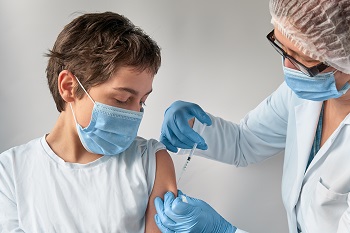 The American Heart Association/American Stroke Association (AHA/ASA) has come out with a new statement in response to reports that the US Centers for Disease Control and Prevention (CDC) is investigating rare cases of myocarditis in teens and young adults who have received one of the mRNA-based COVID-19 vaccines, as TCTMD’s Michael O’Riordan reported last week. The group “continues to urge all adults and children ages 12 and older in the US to receive a COVID vaccine as soon as they can, as recommended by the CDC,” noting that a causal connection between myocarditis and the vaccines has not been established.
The American Heart Association/American Stroke Association (AHA/ASA) has come out with a new statement in response to reports that the US Centers for Disease Control and Prevention (CDC) is investigating rare cases of myocarditis in teens and young adults who have received one of the mRNA-based COVID-19 vaccines, as TCTMD’s Michael O’Riordan reported last week. The group “continues to urge all adults and children ages 12 and older in the US to receive a COVID vaccine as soon as they can, as recommended by the CDC,” noting that a causal connection between myocarditis and the vaccines has not been established.
Governors across the United States are considering whether to end pandemic-related emergency orders as numbers of new COVID-19 cases and deaths remain far lower than previous highs, the Associated Press reports: “In many states, those emergency declarations have been routinely extended by governors every few weeks or months since the pandemic began. But those decisions are getting harder to make—and the extensions harder to justify—as circumstances improve and state lawmakers press to restore a balance of power.” Another story notes, however, that areas of the US with low vaccine uptake have seen increases in case numbers in recent weeks.
There are cautionary notes from other parts of the world, too. British Prime Minister Boris Johnson is expected to delay the next phase of reopening—which was scheduled for “no earlier” than June 21—by up to several weeks due to a surge in COVID-19 cases in the UK driven by the more-infectious Delta variant first detected in India, Reuters reports. “We're continuing to look at the data. No final decision has been taken and the right time to fill everybody in on what we're going to do with . . . June the 21st is tomorrow,” Johnson said Sunday.
The Delta variant is also spreading in southeastern China, where “doctors say they are finding that the symptoms are different and more dangerous than those they saw when the initial version of the virus started spreading in late 2019 in the central city of Wuhan,” according to a New York Times story. Patients are reportedly getting sicker and their conditions are worsening more quickly.
In Canada, two outbreaks of the Delta variant at a Calgary hospital, affecting 22 people, are making national news because 11 of the people infected (including five healthcare workers) had already received two doses of an mRNA vaccine more than 2 weeks previously. Most cases have been mild, but one patient has required ICU care, CBC News reports.
New restrictions have been implemented in Moscow in response to rising COVID-19 numbers, the Associated Press reports: “After several weeks of lockdown as the pandemic spread in the spring of 2020, the Russian capital eased restrictions and did not reimpose any during subsequent case increases. But because of the recent sharp rise, ‘it is impossible not to react to such a situation,’ Moscow Mayor Sergei Sobyanin said.”
Between April and June 2020, the multisystem inflammatory syndrome in children (MIS-C) was rare among people younger than 21, with an incidence of 316 per million SARS-CoV-2 infections, according to a study in JAMA Network Open. However, the condition was more likely to be seen in the Black, Hispanic/Latino, and Asian/Pacific Islander communities than in white individuals, and in younger age groups.
 Another analysis in JAMA Network Open indicates that international medical graduates (IMGs) were disproportionately affected in terms of physician deaths during the first wave of the COVID-19 pandemic in the United States. IMGs account for an average of 25% of practicing physicians, but they made up 45% of physician deaths due to COVID-19, with most of the IMG deaths occurring in New York, New Jersey, and Florida. Primary care specialists were hardest hit.
Another analysis in JAMA Network Open indicates that international medical graduates (IMGs) were disproportionately affected in terms of physician deaths during the first wave of the COVID-19 pandemic in the United States. IMGs account for an average of 25% of practicing physicians, but they made up 45% of physician deaths due to COVID-19, with most of the IMG deaths occurring in New York, New Jersey, and Florida. Primary care specialists were hardest hit.
Todd Neale is the Associate News Editor for TCTMD and a Senior Medical Journalist. He got his start in journalism at …
Read Full Bio


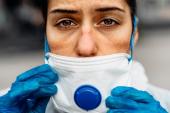

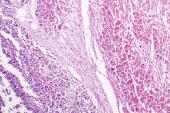
Comments